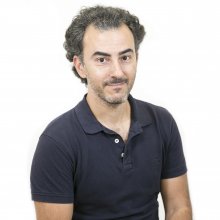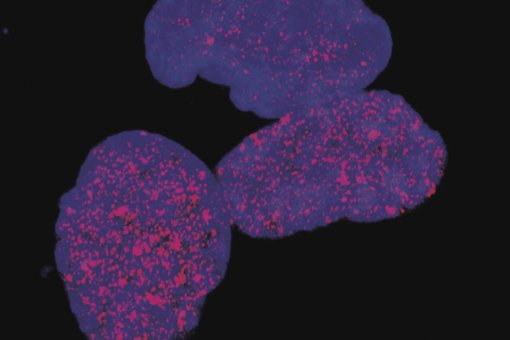Images
Participants


Contact

- Pan-Cancer Project discovers causes of previously unexplained cancers, pinpoints cancer-causing events and zeroes in on mechanisms of development
- IRB Barcelona researchers, as part of an international team, contribute to the most comprehensive study of whole cancer genomes to date, significantly improving our fundamental understanding of cancer and signposting new directions for its diagnosis and treatment.
The Pan-Cancer Project is a collaboration involving more than 1,300 scientists and clinicians from 37 countries. The consortium has analyzed more than 2,600 genomes of 38 different tumor types, creating a huge resource of primary cancer genomes. This was then the launch-point for 16 working groups studying multiple aspects of cancer’s development, causation, progression and classification.
Previous studies focused on the 1 per cent of the genome that codes for proteins, analogous to mapping the coasts of the continents. The Pan-Cancer Project explored in considerably greater detail the remaining 99 per cent of the genome, including key regions that control switching genes on and off -- analogous to mapping the interiors of continents versus just their coastlines.
The Pan-Cancer Project has made available a comprehensive resource for cancer genomics research, including the raw genome sequencing data, software for cancer genome analysis, and multiple interactive websites exploring various aspects of the Pan-Cancer Project data.
“We have been involved in identifying the whole-genome panorama of cancer-causing mutations across more than 2,600 tumors.” Explains Abel González, Research Associate at the Biomedical Genomics Lab at IRB Barcelona. “As a result, for the first time, we have a complete view of how much different types of mutations in different genomic elements contribute to tumorigenesis. This panorama constitutes a blueprint to advance on the path towards a genomics-based precision cancer medicine,” he concludes.
The Pan-Cancer Project extended and advanced methods for analyzing cancer genomes which included cloud computing, and by applying these methods to its large dataset, discovered new knowledge about cancer biology and confirmed important findings of previous studies. In 23 papers published today in Nature and its affiliated journals, the Pan-Cancer Project reports that:
- The cancer genome is finite and knowable, but enormously complicated. By combining sequencing of the whole cancer genome with a suite of analysis tools, we can characterize every genetic change found in a cancer, all the processes that have generated those mutations, and even the order of key events during a cancer’s life history.
- Researchers are close to cataloguing all of the biological pathways involved in cancer and having a fuller picture of their actions in the genome. At least one causal mutation was found in virtually all of the cancers analyzed and the processes that generate mutations were found to be hugely diverse -- from changes in single DNA letters to the reorganization of whole chromosomes. Multiple novel regions of the genome controlling how genes switch on and off were identified as targets of cancer-causing mutations.
- Through a new method of “carbon dating,” Pan-Cancer researchers discovered that it is possible identify mutations which occurred years, sometimes even decades, before the tumour appears. This opens, theoretically, a window of opportunity for early cancer detection.
- Tumour types can be identified accurately according to the patterns of genetic changes seen throughout the genome, potentially aiding the diagnosis of a patient’s cancer where conventional clinical tests could not identify its type. Knowledge of the exact tumour type could also help tailor treatments.
More information:
ICGC - International Cancer Genome Consortium (https://icgc.org/)
TCGA - The Cancer Genome Atlas (https://www.cancer.gov/about-nci/organization/ccg/research/structural-genomics/tcga)
PCAWG - PanCancer Analysis of Whole Genomes (dcc.icgc.org/pcawg)
Expression Atlas (www.ebi.ac.uk/gxa/home)
PCAWG-Scout (pcawgscout.bsc.es)
Chromothripsis Explorer (compbio.med.harvard.edu/chromothripsis)
About IRB Barcelona
The Institute for Research in Biomedicine (IRB Barcelona) pursues a society free of disease. To this end, it conducts multidisciplinary research of excellence to cure cancer and other diseases linked to ageing. It establishes technology transfer agreements with the pharmaceutical industry and major hospitals to bring research results closer to society, and organises a range of science outreach activities to engage the public in an open dialogue. IRB Barcelona is an international centre that hosts 400 researchers and more than 30 nationalities. Recognised as a Severo Ochoa Centre of Excellence since 2011, IRB Barcelona is a CERCA centre and member of the Barcelona Institute of Science and Technology (BIST).




